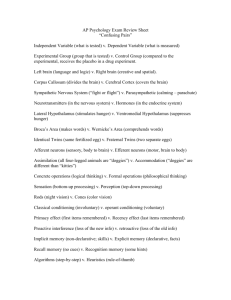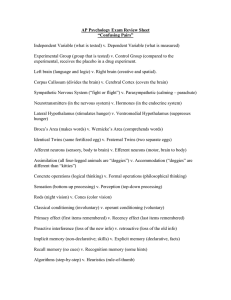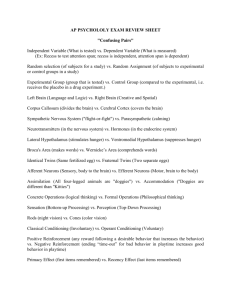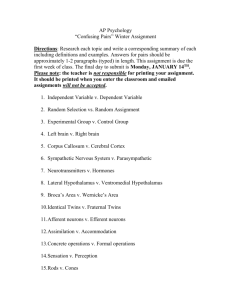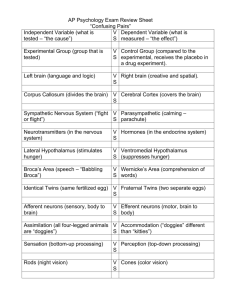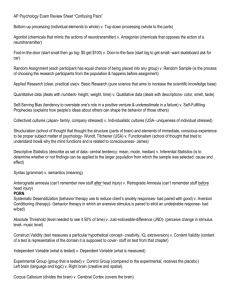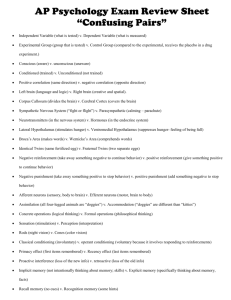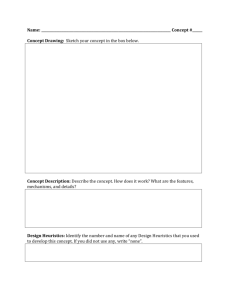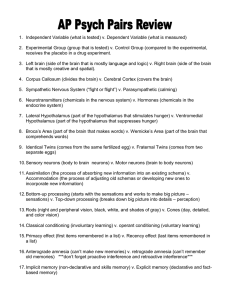AP Psychology Exam Review Sheet “Confusing Pairs”
advertisement
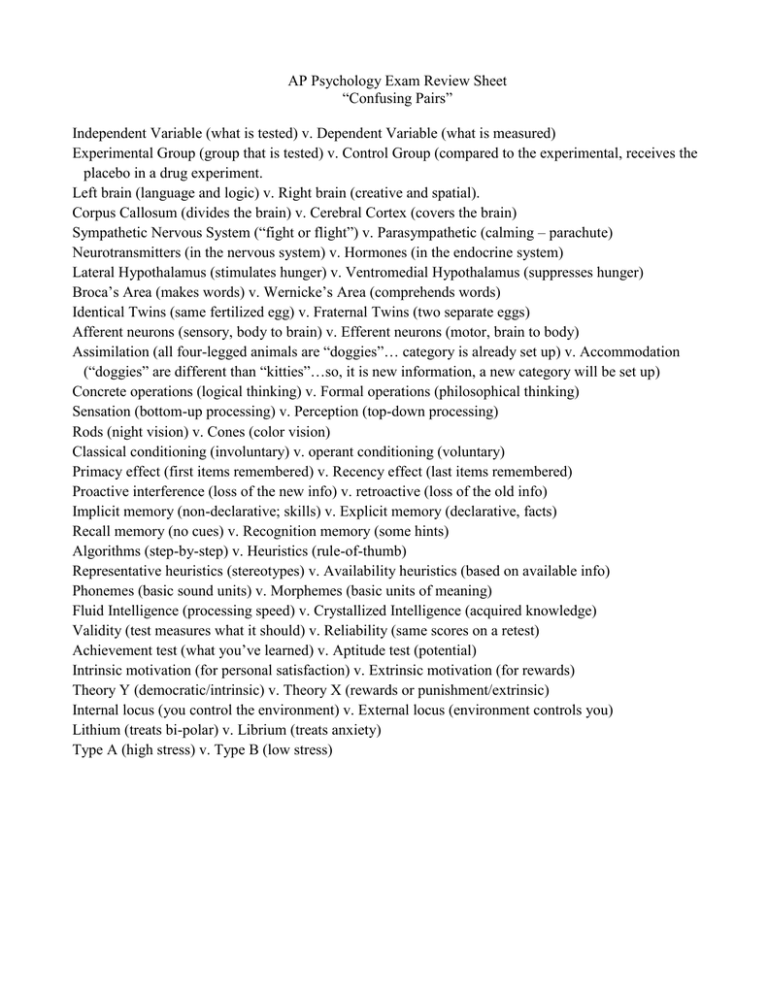
AP Psychology Exam Review Sheet “Confusing Pairs” Independent Variable (what is tested) v. Dependent Variable (what is measured) Experimental Group (group that is tested) v. Control Group (compared to the experimental, receives the placebo in a drug experiment. Left brain (language and logic) v. Right brain (creative and spatial). Corpus Callosum (divides the brain) v. Cerebral Cortex (covers the brain) Sympathetic Nervous System (“fight or flight”) v. Parasympathetic (calming – parachute) Neurotransmitters (in the nervous system) v. Hormones (in the endocrine system) Lateral Hypothalamus (stimulates hunger) v. Ventromedial Hypothalamus (suppresses hunger) Broca’s Area (makes words) v. Wernicke’s Area (comprehends words) Identical Twins (same fertilized egg) v. Fraternal Twins (two separate eggs) Afferent neurons (sensory, body to brain) v. Efferent neurons (motor, brain to body) Assimilation (all four-legged animals are “doggies”… category is already set up) v. Accommodation (“doggies” are different than “kitties”…so, it is new information, a new category will be set up) Concrete operations (logical thinking) v. Formal operations (philosophical thinking) Sensation (bottom-up processing) v. Perception (top-down processing) Rods (night vision) v. Cones (color vision) Classical conditioning (involuntary) v. operant conditioning (voluntary) Primacy effect (first items remembered) v. Recency effect (last items remembered) Proactive interference (loss of the new info) v. retroactive (loss of the old info) Implicit memory (non-declarative; skills) v. Explicit memory (declarative, facts) Recall memory (no cues) v. Recognition memory (some hints) Algorithms (step-by-step) v. Heuristics (rule-of-thumb) Representative heuristics (stereotypes) v. Availability heuristics (based on available info) Phonemes (basic sound units) v. Morphemes (basic units of meaning) Fluid Intelligence (processing speed) v. Crystallized Intelligence (acquired knowledge) Validity (test measures what it should) v. Reliability (same scores on a retest) Achievement test (what you’ve learned) v. Aptitude test (potential) Intrinsic motivation (for personal satisfaction) v. Extrinsic motivation (for rewards) Theory Y (democratic/intrinsic) v. Theory X (rewards or punishment/extrinsic) Internal locus (you control the environment) v. External locus (environment controls you) Lithium (treats bi-polar) v. Librium (treats anxiety) Type A (high stress) v. Type B (low stress)
